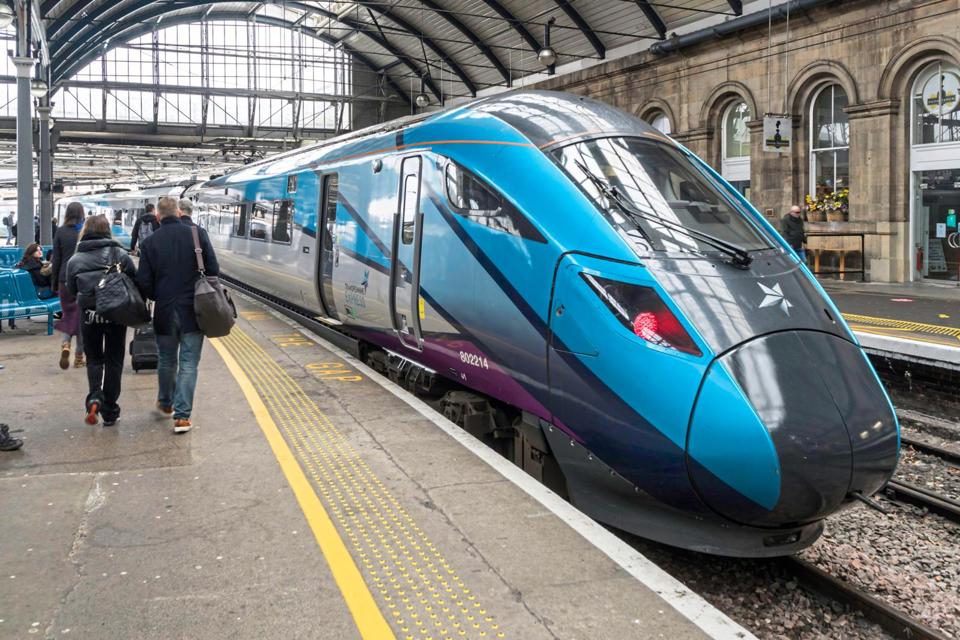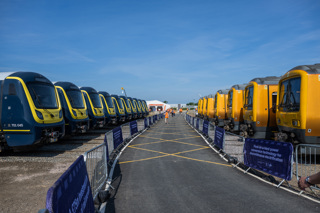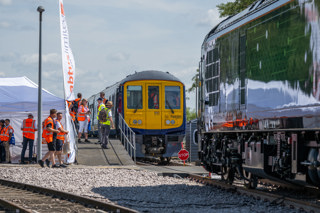It’s taken longer than getting a 100-year-old locomotive into steam, but at last the Labour Party has produced a document setting out its policy on rail.
That in itself is something of a miracle. The government in waiting has produced very little by way of policies on any of the important matters that it might have to deal with at some point later this year, so to choose to issue a statement on rail suggests this will be a keynote policy in the forthcoming hustings.
It’s taken longer than getting a 100-year-old locomotive into steam, but at last the Labour Party has produced a document setting out its policy on rail.
That in itself is something of a miracle. The government in waiting has produced very little by way of policies on any of the important matters that it might have to deal with at some point later this year, so to choose to issue a statement on rail suggests this will be a keynote policy in the forthcoming hustings.
Forget (for the moment) the detail, which is fine but rather underwhelming. The media coverage of the announcement shows why the Labour leadership allowed this statement to be issued. The statement emphasises the fact that the railways are being renationalised, and this was widely picked up by the media.
The statement itself is, in fact, far less radical than suggested by the ‘Labour to renationalise the railways’ headline. But the appearance of seeming radical will appeal to left of centre voters without frightening the mass of those of a more centrist tendency.
For starters, the key component of the industry - the assets that make up the track and the rest of the infrastructure - was renationalised in practice nearly two decades ago after the collapse of Railtrack and formally recognised as such in 2014.
Secondly, there is no question of this new structure being a second coming for British Rail. The old BR was an integrated organisation that ran everything from train services to lost property, engineering and catering.
It owned the trains, maintained all the tracks and infrastructure, had all kinds of subsidiaries operating ferries, hotels and sundry other services, boasted a top-class research organisation, and was able to innovate and experiment.
In contrast, Great British Railways will be a far more modest organisation.
The only vaguely far-reaching part of Labour’s plan is to take back the franchise contracts as they run out. And even that, as Shadow Transport Secretary Louise Haigh has emphasised, might take up to five years (the whole of Labour’s first term) because they will be allowed to run their course.
Actually, I suspect it won’t take that long because the remaining operators may just throw in the towel when they realise that the return to a more lucrative franchise structure simply isn’t going to happen.
This is neither new nor particularly radical. It is merely a continuation of a policy made during Jeremy Corbyn’s time as leader, and reiterated several times at subsequent Labour party conferences.
It does, of course, make perfect sense. The frailty of the franchising system, and its tendency to allow operators to make tidy profits while facing very little risk, was all too exposed by the pandemic and was quickly turned into a management contract system, with fares revenue going to government rather than the private operators.
Reviving the franchise system, with risk being handed back to the private operators, is not really an option following the inability of the Conservatives since the end of the pandemic to find such a system without returning to the old structure, which was discredited by the May 2018 timetable fiasco.
The difficulty can be shown by the fact that Transport Secretary Mark Harper has failed to restart the bidding process for the four contracts currently being run by the government-owned Operator of Last Resort, despite numerous promises to do so - demonstrating the impossibility of drawing up a contract which would both transfer risk and guarantee state control.
Therefore, Labour’s plan to end franchising once and for all is to be welcomed, as it offers a far better opportunity to bring about the reintegration of the industry - which is widely perceived to be essential in improving performance and reducing cost.
But there is still uncertainty about what this new structure will look like and who will be in charge.
I have been involved in a bit of a spat over this issue with my old pal Peter (now Lord) Hendy, the chairman of Network Rail.
He has complained about my argument that putting Network Rail at the top of the Great British Railways structure is a mistake, as it is an engineering organisation, not customer-facing.
Hendy argues that this Network Rail is the only organisation capable of running the railways, and that I am wrong to keep “peddling the story about an NR takeover”.
He says that it is unavoidable for NR to be at the heart of the new structure, and that it is not ‘engineer-led’ because many of the senior staff are not engineers.
My view is that if it looks like a duck and quacks rather loudly, it probably is a duck.
Labour has in fact been circumspect about revealing the role of Network Rail in the GBR structure.
Indeed, in an interview for the BBC Newscast podcast, Labour’s Haigh seemed to go much further in expressing doubts about giving Network Rail the reins at GBR.
She said that Labour’s reforms were needed because “the current system doesn’t work in the interests of the passenger, so that is why we have set out a really detailed plan today that will reform our railways top to bottom … so we are abolishing Network Rail”.
She goes on to stress that the core idea is to “bring together decisions around track and train”. So, big doubts about NR’s future role.
That suggests rather more radical intent than has been set out in the document, which actually does much to pander to those who want to see a strong private sector role in the industry.
In particular, by giving her keynote speech at Trainline, Haigh was certainly implying that she is not reviving the idea of GBR becoming the sole ticket agency, as set out in the original Williams-Shapps Plan for Rail but later scrapped by Harper.
Moreover, Labour seems to support the expansion of open access services, suggesting that they boost the number of rail travellers when, in fact, the evidence on this is mixed.
Moreover, the open access operators often run shorter trains to marginal destinations that may well prevent a coherent timetable from being set.
They can be very disruptive as various operators compete for what is a limited number of paths, and leads to what planners call a ‘sub-optimal’ pattern. You can either have a coherently planned railway or allow it to be at the mercy of market forces, but you can’t have both.
Labour’s plans are clearly a work in progress, and what emerges once the party is in government may look rather different from what is set out in this document.
The real barrier to progress is that for the next few months, the railways are in the hands of a government that has given up trying to govern.
Read more from Christian Wolmar every fortnight in RAIL magazine. The full version of this commentary appears in issue 1009 (May 15 - May 28 2024). Subscribe to never miss an issue.
Login to continue reading
Or register with RAIL to keep up-to-date with the latest news, insight and opinion.



















Login to comment
Comments
No comments have been made yet.